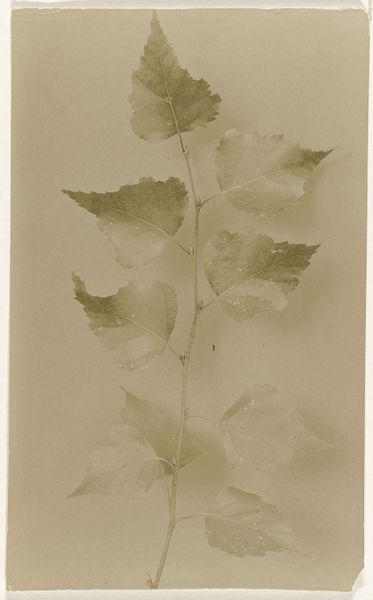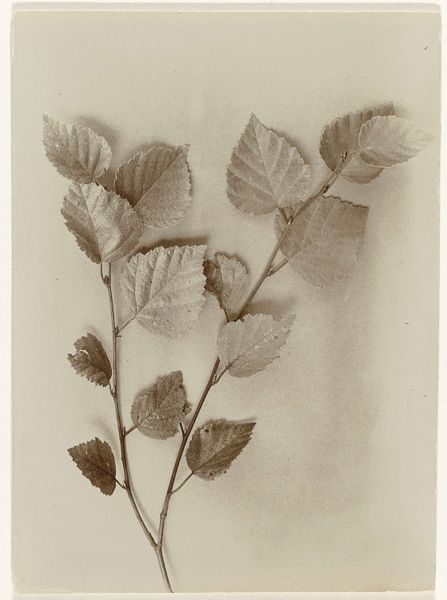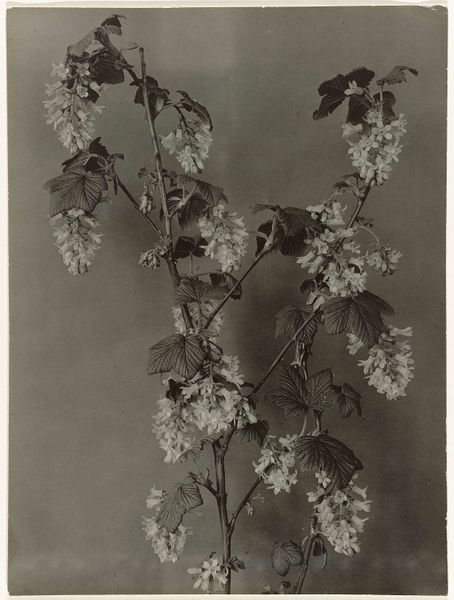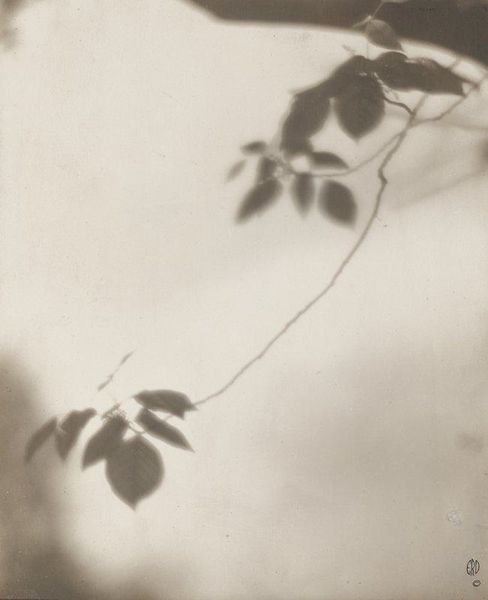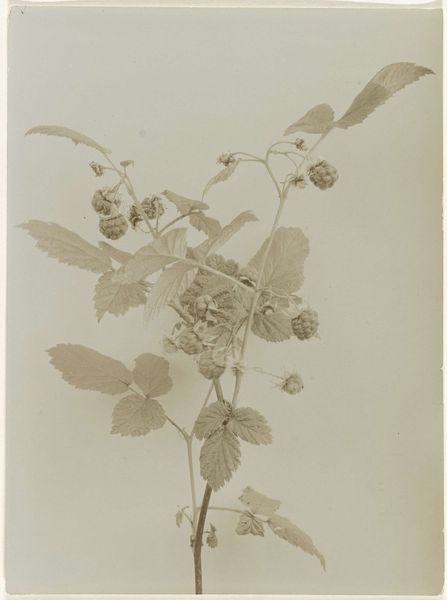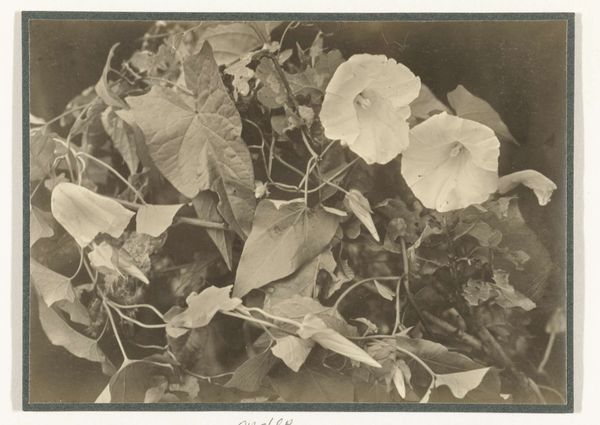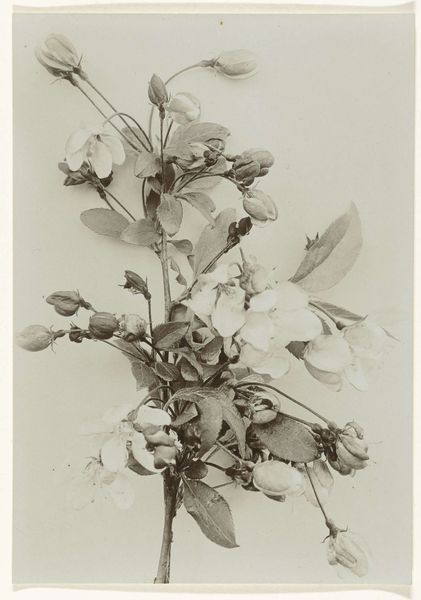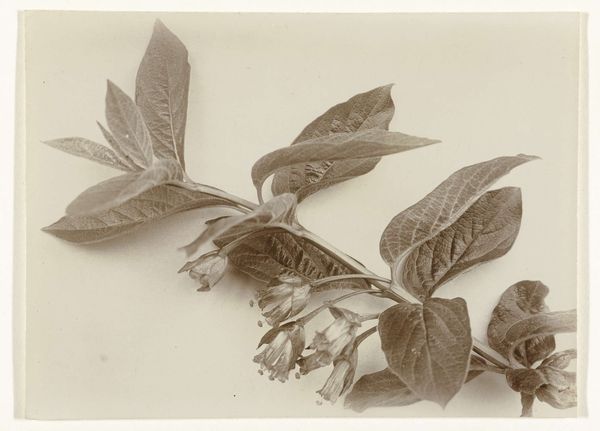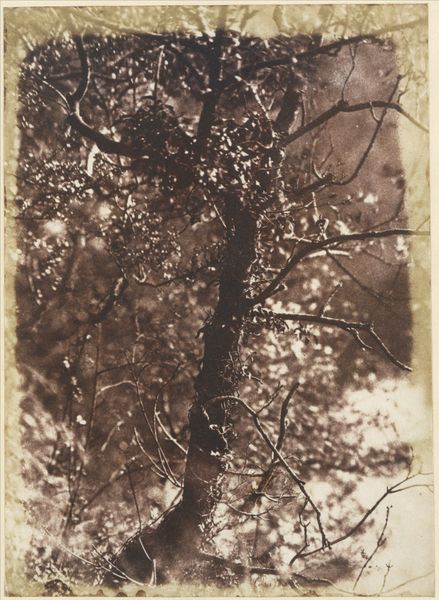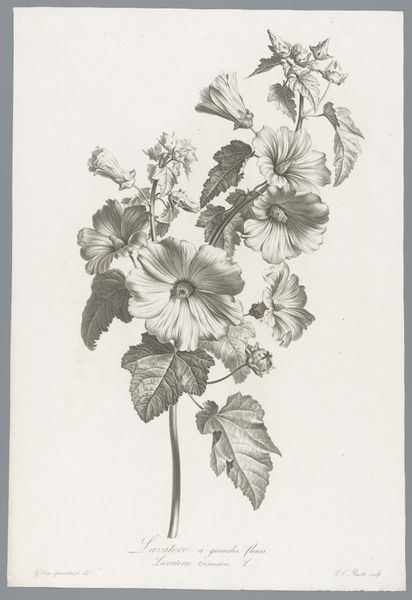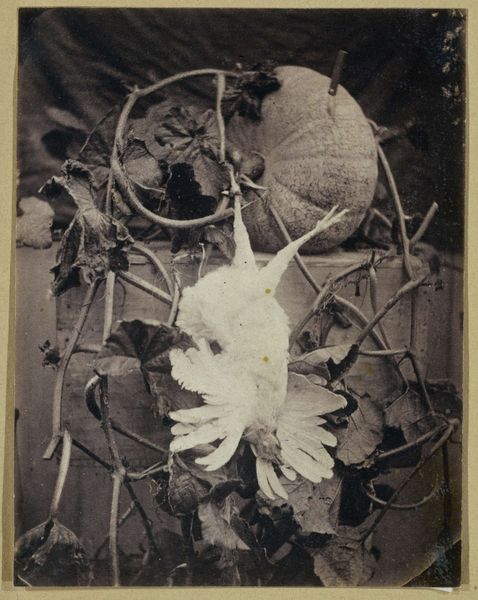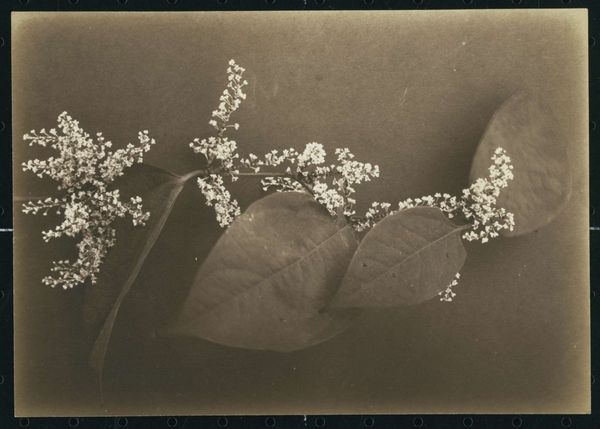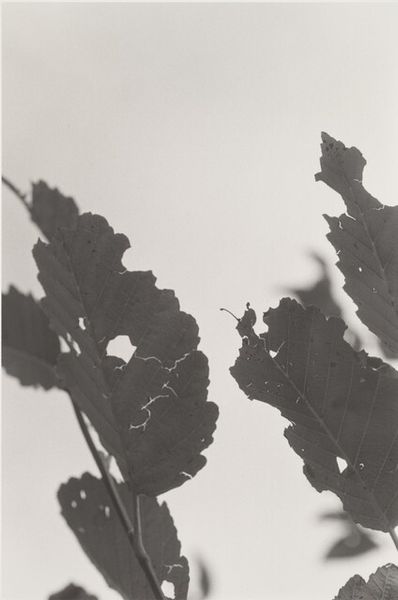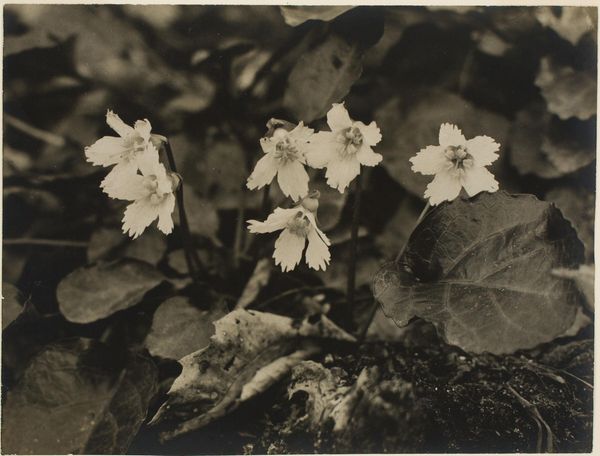
print, photography
#
still-life-photography
#
worm eye perspective photography
# print
#
culinary art
#
photography
#
appetizing
#
macro shot
#
botanical photography
#
macro photography
#
food art
#
food photography
#
naturalism
#
fruit
#
nature closeup
Dimensions: height 219 mm, width 163 mm
Copyright: Rijks Museum: Open Domain
Richard Tepe made this photogravure of an oak branch with fruit in the Netherlands at the turn of the 20th century. In that time, photography was still establishing its place among more established art forms, and the photogravure process was an attempt to bring photography closer to printmaking. It allowed photographers to create images with a wide range of tones and fine details, similar to etchings or engravings. Botanical photography was quite popular at the time, reflecting a broader interest in the natural world driven by scientific exploration and colonial expansion. The Rijksmuseum, like many national museums founded in the 19th century, played a role in shaping cultural identity and promoting national pride through art and historical artifacts. Tepe's choice of the oak – a symbol of strength and longevity, deeply rooted in Dutch culture – may reflect this nationalistic sentiment. To understand the image better, researchers could consult contemporary photography journals, botanical studies, and museum archives to uncover the social and cultural contexts that shaped its creation and reception.
Comments
No comments
Be the first to comment and join the conversation on the ultimate creative platform.
